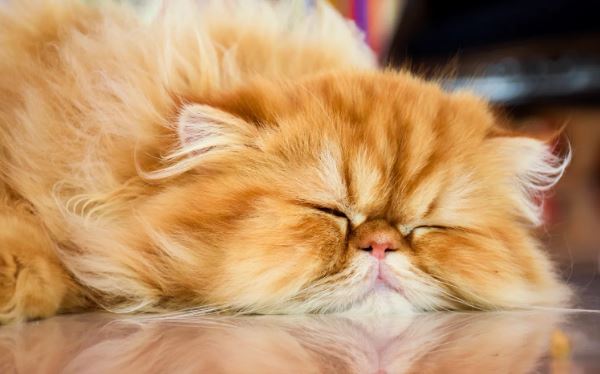Lifestyle
5 sleepiest animal in the world

Sleep is a crucial aspect of the animal kingdom, as it is essential for maintaining health, conserving energy, and promoting overall well-being.
While the duration and patterns of sleep can vary greatly among different species, some animals are known for their exceptional drowsiness.
We will explore the five sleepiest animals in the world, shedding light on their unique sleep habits and why they spend so much time dozing off.
1. Koalas
Koalas, those iconic marsupials from Australia, are renowned for their lengthy naps. These eucalyptus-loving creatures can sleep for up to 22 hours a day! Koalas’ sleepiness is a result of their diet, as eucalyptus leaves are fibrous and challenging to digest, requiring a significant amount of energy. To conserve energy, koalas spend most of their day in a state of rest. When they are awake, they are usually found munching on their leafy diet or moving slowly from one tree to another.
2. Sloths
Sloths, native to the rainforests of Central and South America, are perhaps the sleepiest animals on Earth. They are known to sleep for up to 20 hours per day, leaving them just a few hours for feeding and other activities. Their extreme sluggishness is a result of their diet, primarily consisting of leaves, which provide limited energy. Sloths are expert tree climbers but spend the majority of their lives hanging upside down from branches, making the most of their slow metabolism to conserve energy.
3. Armadillos
Armadillos, small mammals with tough, protective shells, are also among the world’s sleepiest animals. They can sleep for an astonishing 18 hours a day. Armadillos are primarily nocturnal, so they are more active during the night when they forage for insects. During the day, they retreat to their burrows or hide in dense vegetation to rest and sleep. Their lengthy siestas help them maintain their energy for their night time activities.
4. Cats
Domestic cats are known for their love of sleep, averaging about 12-16 hours of slumber per day. This behaviour is rooted in their evolutionary history as solitary hunters. In the wild, cats would expend considerable energy stalking and capturing prey. To maintain their hunting prowess, they’ve adapted to conserve energy by sleeping for long periods. Cats are crepuscular animals, meaning they are most active during dawn and dusk, making their daily naps essential for energy conservation.
5. Bats
Bats, the only mammals capable of sustained flight, are surprisingly among the sleepiest creatures in the animal kingdom. Most species of bats sleep for roughly 16 hours a day, mainly during daylight hours when they roost. Nocturnal by nature, bats are incredibly active during the night, flying, hunting insects, and engaging in social activities. To maintain their high energy expenditure during the night, bats rely on extended periods of sleep during the day.






